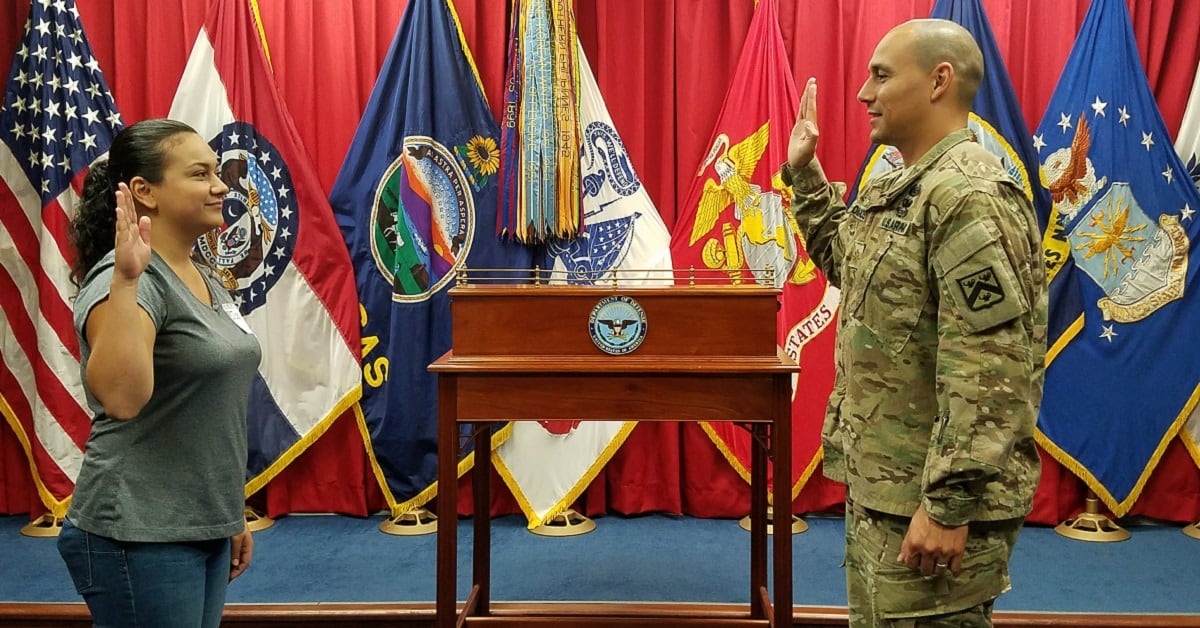April, the month of the military child, is a time for all Americans to recognize military children’s strengths and contributions, and the challenges they face related to their parents’ military service. Yet, recently published articles in Military Times tell of U.S. Army, Navy and Air Force policies that could place military children’s health and future career aspirations in jeopardy.
These service branch policies allow merging of military children’s pre-existing “military dependent” medical records with their “military service” medical records. This means that confidential medical records of military children treated for health-related conditions under the age of 18 years within military treatment facilities (for any disorders, including emotional and behavioral disorders) are available to the Army, Navy and Air Force if those individuals choose to join the military service as adults.
In one Military Times article, two women were profiled for whom these policies meant losing a military career. These policies are flawed and undermine the well-being of military children. They also do a disservice to our military force.
RELATED

Since the start of the Iraq and Afghanistan wars in 2001, military children have been encouraged to seek support for combat deployment-related stresses, to great success. However, the merging of dependent and military service medical records will undermine these efforts, and most likely limit the willingness of military parents to bring their children for care, particularly mental health services, in the military system.
This will not only cause reluctance in seeking assessments from child psychiatrists, psychologists, social workers and psychiatric nurses, it can also undermine relationships with pediatricians, adolescent medicine doctors and other primary care physicians who often treat children for emotional or behavioral problems. The result will increase stigma, reduce access to care, and restrict emotional support and treatments of psychiatric illnesses, all of which could worsen military children’s health.
This is not to say that young adults with severe or chronic mental disorders should be allowed to enter the military. However, it is important to remember that psychiatric disorders, like medical disorders, range in severity from “common colds” to cancer.
The majority of childhood mental health visits do not indicate serious disorders that will impair functioning in adulthood, either in civilian life or in the military. In addition, diagnoses entered into children’s medical records years earlier may be inaccurate, making them poor predictors of current mental status and functioning.
As a result, the current Army, Navy and Air Force policies will more likely harm children by restricting their access to care and military service, rather than protect the military from disqualified candidates.
RELATED

Military children are the largest youth group in the country that enlist in the services. Their emotional health and well-being have been shown to be comparable to their civilian counterparts.
Additionally, military children have had personal experiences related to their parents’ military duty, making them highly suitable for enlistment, and they remain important resources to our country in their willingness to serve.
As these current Army, Navy and Air Force policies can undermine the health of military children, restrict their opportunities to enjoy military careers, and limit important contributions to national service, the military services have more to lose than to gain through such practices.
Access to their medical records should only occur with the fully informed consent and release of records by military children when they are adults. We recommend rescinding policies of merging military children’s dependent medical records and military service records.
The opinions or assertions contained herein are the private ones of the authors and are not to be construed as official or reflecting the views of the Department of Defense, the Uniformed Services University of the Health Sciences or Military Times.




